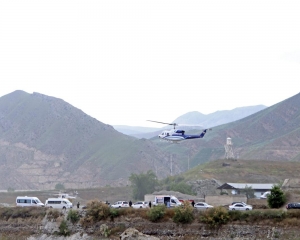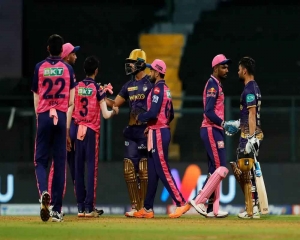Away from the political slugfest, BJP MP Varun Gandhi has penned a massive 870-page book exploring reasons of rural indebtedness, deepening distress, slowing down of agriculture growth and income, failure of ‘Mandi system’, decrease in land-holdings, rising suicides by farmers even as he seeks to find out why rural economy is in shambles even after over six-decades of independence and ‘dives deep’ to look at the root causes” and solutions.
“This is a solution-oriented academic critique. The book is blameless in its scope and seeks to find out how to solve a problem,” said the BJP MP, who has been away from the political blitzkrieg his party has unleashed in the States undergoing the poll process.
The book — A Rural Manifesto-Realising India’s future through her villages — according to the BJP MP, “The feasibility of an Indian village as an independent socio-economic entity, capable of sustaining itself independent of external linkages.”
Varun argues that for several centuries farmers were the real strength behind Indian economy, generating agriculture surplus and trade revenues brought in by its rural entrepreneurs in handicrafts, calico and metal work but suddenly over last couple of centuries “India’s natural competitive advantage had vanished”.
“Our agricultural techniques grew outdated, our handicrafts, once pillaged by the British, found fewer and fewer markets. Such an event draws natural questions — how did India’s demographic change transform its rural economy,” he questions in the book.
It focuses on the impact of rising prices of agricultural inputs, availability of water, soil suitability and pest management, highlighting the narrow window of economic benefit for the marginal farmer.
The well-researched book that goes back and forth into the historical incidents of farmers movements, including that led by Mahatma Gandhi in Champaran, Bihar, explores what it means to be a marginal farmer in present days, while providing solutions to improving the economic viability of marginal farming and highlighting the role non-farm income plays in supplementing oneself below the poverty line.
Asked whether he would present a copy of the book to Prime Minister Narendra Modi, Varun said, “Yes, of course!” He went on to say that there would not be any formal release of his tome. “I would be going across the country with 14 lectures, the first being at IIM Ahmedabad, second IIT Mumbai and third at Indian Institute of Science, Bangalore,” he said. His lecture series would begin from November 30.
On the possibility of ruling elites and political parties taking a leaf out of his book, the Sultanpur MP said, “My primary concern is that farmers, labourers, weavers and others vote their concerns rather than vote religion, region or their caste. Then politicians would also react to their concerns swiftly,” said the BJP MP and sought to move away from controversies.
He said the idea of writing book came from the hinterland of the country during his travel, campaigning and meeting students of universities in States.
Would you be applying the solutions (in the book) to your own constituency? “In 2009, I decided I would give my MP’s salary to the family where a suicide happened. This went on for three years. But that had a limited scope, only few benefited in Sultanpur and surrounding districts,” he explained.
Varun said he, thereafter, worked with district administration, identified all farmers in debt who could potentially commit suicide and worked out a plan for 26 districts. “For example, we asked farmers to grow pulses instead of paddy which needed water and crowd-funded Rs 30 crore in 2015-16 for them”.
On farmers burning stubble contributing to pollution and air quality in Delhi, he argued cost of stubble processing is Rs 6,000 whereas penalty of burning is about Rs 2,500 per acre making “economic sense”.

























